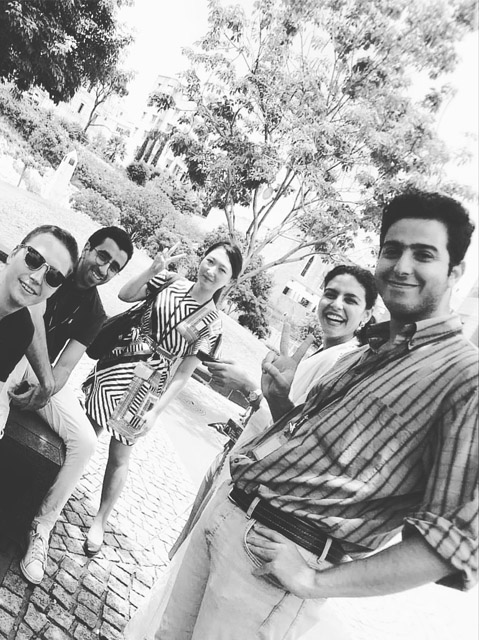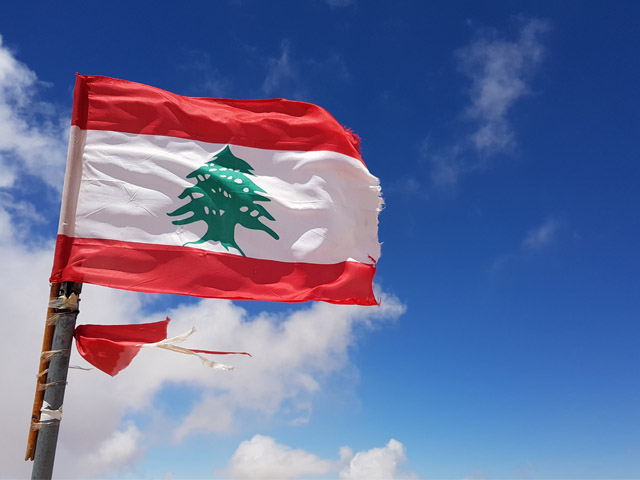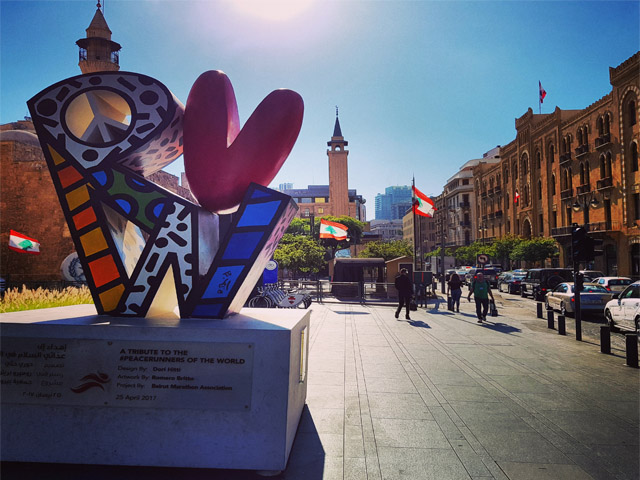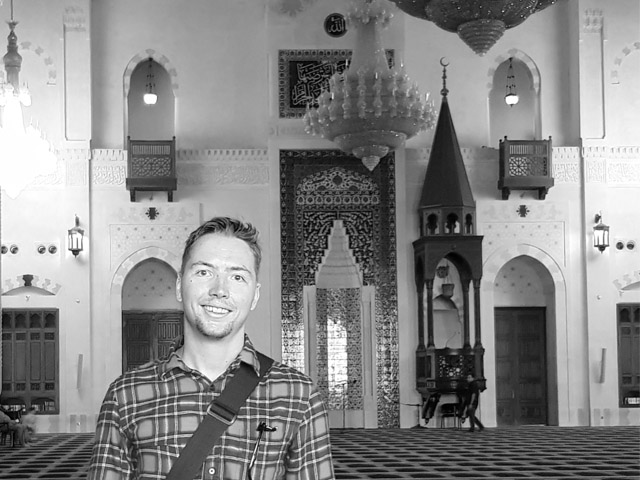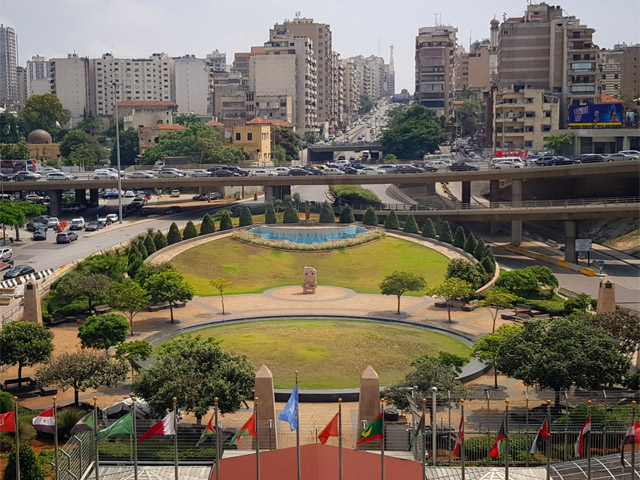The Economic and Social Commission of Western Asia (ESCWA), which was established in 1973, is one of five regional commissions of the United Nations (UN) with the aim of fulfilling the economic and social dimensions of the Charter. As such, ESCWA represent an important forum for cooperation and development in a region that’s dealing with the aftermath of events such as the U.S. invasion of Iraq, the Arab Spring and the Islamic State (IS), as well as ongoing civil wars in Libya, Yemen and Syria.
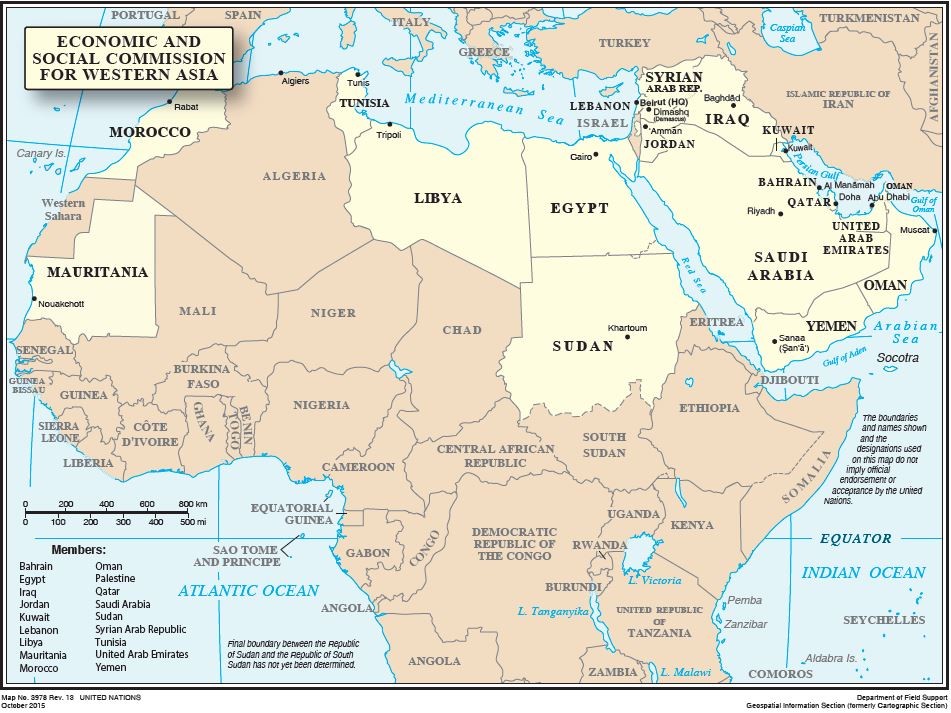
For the Lebanese the conflict in neighbouring Syria is a pressing reality of daily life, not just imagery on news channels and online media. According to the government of Lebanon; more than 1.5 million Syrian refugees are currently living in the country, making up more than 25% of the total population. If the 278,000 Palestinian refugees are included in the calculation, close to 30 percent of Lebanon’s total population is believed to have refugee status.
Getting a feel for this situation was easily one of the most formative experiences of my internship period. Walking through my local neighbourhood of Hamra in Beirut, Syrian shops and restaurants were copious – and the inflow of Syrians was a favourite discussion point of local taxi drivers.
For some readers of this piece, a short (and very rudimentary) introduction to Lebanon’s history and geopolitical circumstances might be in order. Situated in the east of the Mediterranean, the country is placed between the Republic of Syria to the north and east, and Israel to the south. After rising religious tensions, a bloody civil war broke out in 1975 which lasted until 1990 and claimed the lives of more than 120,000 people – with both Syria and Israel being involved in the conflict.
Today Lebanon hosts a semi-presidential democracy based on confessionalism – meaning that political posts and representation is divided between certain religious groups. I highly recommend readers to read more about this system, as it is incredibly interesting for any scholar on post-conflict transitions and democracy. The military has a high presence in the streets and throughout the country. It would be a lie to say that this did not take some getting used to, particularly the tank always parked outside my flat. However, after a while it just became a fact of daily life.
During my summer internship with ESCWA, I worked with ‘the Emerging and Conflict-related Issues Division’ (ECRI). One of the lessons I learned from working with the UN is that their love for acronyms would surely give Singaporean institutions a run for their money – I’m looking at you The Lee Kong Chian Natural History Museum (LKCNHM).
At ECRI, I was fortunate enough to be part of a team working on a socio-economic dialogue project in Libya. During the first week of my internship, the tasks given to me were of the ordinary sort – writing one pager on recent Libyan peace talks, preparing background notes for meetings, and filling our project proposals.
All this changed, however, after a Friday farewell lunch for a colleague at the division. At this lunch, I ended up sitting next to the director of the division, Mr. Alami, who probed me on my understanding of the Libyan conflict. After a brief discussion, he then asked me a question along the lines of: “If you had to pinpoint one issue in Libya that should be fixed to help establish peace, what would it be?”. My answer was the black-market economy and illicit trading flows. His reply? “Great, get an outline on my desk by Monday”.
This marked the start of my deep-dive into the world of criminal markets, illicit flows and smuggling in Libya and the region. Not only did this assignment represent unchartered academic waters for me, but the topic has lingered in my mind and assignments throughout the winter semester at LKY SPP. My supervisors at ECRI were always open for a discussion on the topic, and I’m grateful for the guidance and support they offered throughout my stay. Apart from the final report, a high point of the assignment was to present my findings to partners from the German development Agency (GIZ).
On the whole, my stay at ESCWA gave me insights into a fascinating region of the world and inspired me to apply for the Young Professional Programme of the UN. Indeed, it provided me with experiences that made me more certain of my professional path into an international civil service after my degree at LKYSPP.
I encourage everyone to go and see the beautiful country of Lebanon, the amazingly vibrant city of Beirut – and stuff yourself on amazing Lebanese food. I will never forget the experience of watching the Football World Cup throughout Beirut – with fireworks, flags and spontaneous street parties being a common occurrence. For students interested in the region, I would highly recommend ESCWA as a place for internships.
To everyone that made my internship period so special, Shokran!
